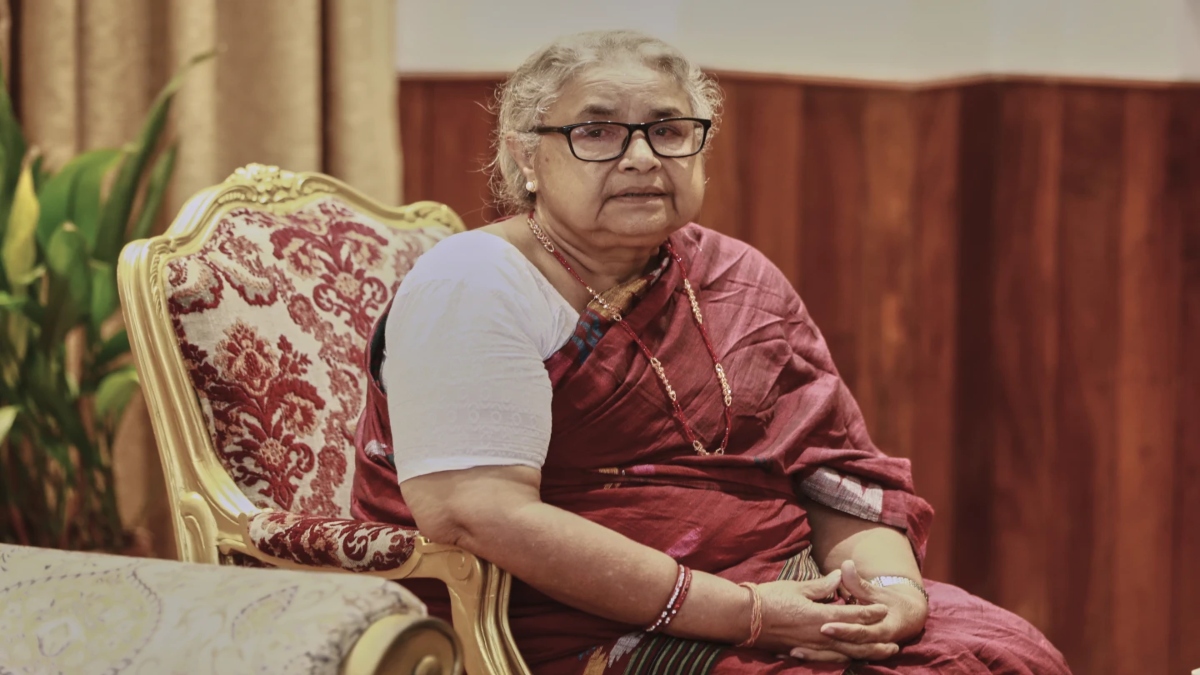Nepal’s interim prime minister Sushila Karki took charge on Saturday after weeks of Gen Z–led protests against corruption, unemployment, and a social media ban forced KP Sharma Oli to step down.
According to PTI, a cabinet expansion is expected later in the day.
Karki, 73, a former chief justice, was sworn in on Friday night as Nepal’s first woman prime minister, ending days of political turmoil following Oli’s resignation. The protests, which erupted on September 8, left more than 70 people dead after demonstrators stormed government offices and clashed with security forces.
After assuming office, Karki announced that those killed in the movement would be declared martyrs, with their families receiving Rs 10 lakh in compensation. She pledged to address corruption, one of the main causes of the unrest.
“We have to work according to the thinking of the Gen Z generation. What this group is demanding is an end to corruption, good governance and economic equality,” Karki said in her first public comments since taking office. She also stressed her government would not remain in power beyond six months.
“We won’t stay for more than six months. We will hand over the responsibility to the new parliament. We won’t succeed without your support,” she added. Karki also promised an investigation into acts of vandalism during the protests, saying, “My team and I are not here to taste power.”
Impact Shorts
More ShortsOn Sunday, Karki held a minute’s silence for those killed in the unrest before beginning meetings at Singha Durbar, the government complex where several buildings were torched during mass protests.
At least 72 people were killed and 191 injured in two days of violence, according to Chief Secretary Eaknarayan Aryal, raising the earlier toll of 51. Officials described the unrest as the worst since the end of the civil war and the abolition of the monarchy in 2008.
Karki described the 27-hour protest as the first of its kind in Nepal, calling the demands for equality and accountability legitimate. She noted that her name was pushed forward by youth activists themselves: “The situation that I have come in, I have not wished to come here. My name was brought from the streets.”
Her appointment followed tough negotiations led by army chief General Ashok Raj Sigdel and President Ram Chandra Paudel, who also engaged with representatives of the Gen Z protest movement. Many young activists, coordinating via the Discord app, had named Karki as their preferred leader.
Parliament was dissolved shortly after Karki took oath, with elections now scheduled for March 5, 2026.
“We will not stay here more than six months in any situation, we will complete our responsibilities and pledge to hand over to the next parliament and ministers,” she reiterated in a national address.
Ordinary Nepalis expressed cautious hope. “This government’s list of responsibilities and issues to address isn’t easy,” said Satya Narayan, a 69-year-old shopkeeper from Pharping, near Kathmandu. “It also needs to ensure unity and harmony in the country by taking all sections along.”
President Paudel, who administered Karki’s oath at Sheetal Niwas, called her appointment “a peaceful solution found through a difficult process.” Soldiers began withdrawing from the streets over the weekend, but authorities face a major security challenge with more than 12,500 prisoners still at large after escaping during the chaos.
Regional leaders welcomed Karki’s rise. Indian prime minister Narendra Modi said New Delhi supported “peace, progress and prosperity” in Nepal, while China’s foreign ministry vowed to “push China-Nepal relations steadily forward.”
The Dalai Lama also sent his wishes, expressing hope that Karki would “fulfil the hopes and aspirations of the people of Nepal in these challenging times.”
)